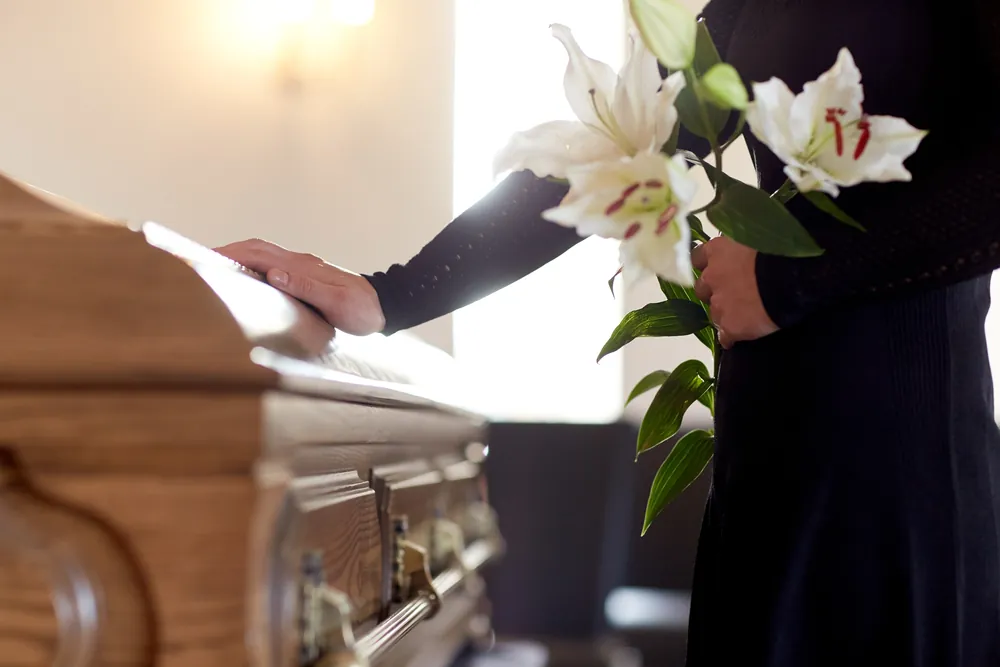You’re probably familiar with the feeling of slight disappointment that you may have when a good thing—say, a nice trip—is over. Just as you say that it’s too bad that the experience is already finished, someone will probably say that you had a good time nonetheless; an innocent, fitting expression to cheer you up a little bit. This phrase can be harmlessly used in a variety of circumstances, but there’s one in which it really doesn’t fit at all, yet people keep using it: when somebody dies of aging.
Not quite the same thing
In the summer of 2011, my 99-year-old grandmother was dying. She was relatively fine one day, and then on the next day, for no apparent reason, she was in bed, barely conscious. Throughout the subsequent month, she never got out of bed; all her physical necessities were being taken care of by my aunt, who was assisting her day and night. She was drip-fed for the entire month until her death. The doctors couldn’t really do anything for her, and my aunt, stressed to her limit, was torn between the sight of the non-life her mother was going through and the thought that suspending the drip feed would possibly have been the more humane choice. The drip was never suspended, and eventually, my grandmother died.
Many relatives came to visit my grandmother during that month. Many of them, in an attempt to cheer up my aunt, who was watching powerlessly as her mother slowly passed away, remarked how this was nothing but the closing of an arc; my grandmother, they said, had led a full life, a good one, and now it was coming to a conclusion. It was a simple as that. I was there; in a twist of fate, the dawning revelation that I didn’t want to age and die, nor did I want that for others, had struck me only a few months earlier. For the first time, I did not just nod approvingly at those clichés, although under the circumstances, I did not have the strength to reply to that, as it wouldn’t have been appropriate to start an argument about it.
My relatives’ observations on the cycle of life offered no comfort to my aunt, nor were they of any use to my dying grandmother, who probably couldn’t even hear them. They certainly didn’t change the fact that my grandmother was dying and that both she and my aunt were going through a horrible ordeal.
Does any of this sound like saying “well, she had a good life” is as acceptable as is saying “well, you had a good time” when your holidays are over?
Beware of false analogies
Don’t get me wrong; I’m not picking on people’s manners here. Death always has a profound impact on us all, and there’s little or nothing that you can say to cheer up people who are losing their loved ones. Yet, we all feel that we must attempt to relieve their pain, and this kind of cliché has been repeated over and over for millennia; it’s hard to give up on using it, as it’s the only weapon, however ineffective, that we can use to sugarcoat the bitter notion that what happened to my grandmother will happen, in some form, to all of us.
What I object against is how these set phrases are often used as more than mere uplifters; they become justifications for death. Just like people say “well, you had a good time” when your holiday is over, they say “well, she had a good life” when somebody dies, as if this made it any better; as a matter of fact, these two situations aren’t even similar.
First, notice how hardly anyone would dare say “well, you had a good life” to someone who is dying of aging or anything at all. People who may say this are either people who are dying themselves, to ease their own passing, or people who are trying to console the relatives of a dead or dying person. This phrase inherently attempts to diminish the negativity of death on the grounds that the life that preceded it was good; however, the fact that such life was good, or long, doesn’t mean that it is acceptable, good, or fortunate for it to end. That’s not much smarter than thinking that having made good use of your arms makes it any better if you happen to lose them.
Secondly, when even the most fantastic event of your life is over, you can always experience another event of the same kind, or another kind entirely, equally if not more fantastic. You have your memories of the event, you may have pictures, videos, souvenirs, and so on. You have been enriched, or at the very least changed, by the experience, and you bring this change within you; you can always look back at it.
When you die, whether or not your life has been great or horrible makes no difference. You can’t look back at it, you can’t remember what happened in it, you can’t look at pictures of it, and what the events of your life have made you into is lost entirely and forever. Forget that others will remember you (for most of us, this lasts for a generation, tops); you will not be there to notice the difference. When something nice in your life is over, you still carry its benefits within you, and you can look forward to more; that’s why “well, you had a good time” is an okay thing to say. When your life is over, there’s no longer any “you” that can carry any benefits of any kind or look forward to anything at all. So, no; the two situations are nothing alike.
Granted, if you’re dead, you also won’t be there to notice any of the above, so you might argue that it can’t be bad if you’re not there to experience it; and indeed it isn’t—for you. It is, though, for your loved ones who will be grieving and missing you for a while, even though they will probably move on, eventually. For you, the bad sides of death happen before it. If you happen to die unexpectedly, quickly, and painlessly, for example in a very violent accident or in your sleep, it probably won’t be so bad. However, in the case of aging or another slow cause of death, you’ve got all the time in the world to notice your own decay and realize what you’ve lost, what you’re losing right now, and what you will lose.
Double standards
As a side note, you wouldn’t say “well, he had a good life” in the case of someone who is dying before old age. You would say “oh, but he’s so young!” Apparently, if a young person is dying, whether or not that person has had a good life thus far doesn’t seem to make much of a difference. This betrays unintentional age-based discrimination: if you die young, that’s a tragedy; if you die old, it’s not so bad as it would have been had you died young.
This double standard is fueled by the misconception that an old person wouldn’t have much life left anyway, so it’s not much of a loss if he or she dies. However, the remaining life of old people isn’t short because they’re old—it’s short because they’re not healthy enough to live a long time, and we aren’t yet capable of fixing this. If a young person had a lethal disease that we can’t cure, he would be in the exact same situation as an old person—both people have very short lives ahead of them because of our inability to cure them. The young person would have still a life ahead of him if he wasn’t terminally ill; this is pretty much the same as the old person’s case, the only differences being that the old person has probably many different conditions competing to see which can kill him the fastest and that we treat these conditions much more nonchalantly than we do for conditions affecting younger people.
Conclusion
“Well, she had a good life” is part of a plethora of other set phrases and coping mechanisms that, historically, have allowed humans to come to terms with mortality and allow the species to go on. However, they’re just a hindrance now. It’s true that rejuvenation is not here yet, and we’re very far from being able to promise anyone that they will never die. However, rejuvenation science is in its infancy, and mindlessly perpetuating these coping mechanisms will only serve to delay its transition into adulthood. As we keep striving to bring aging to its knees, the time has perhaps come to find new, more rational ways to cope with the inevitable losses that will happen until that moment comes.




